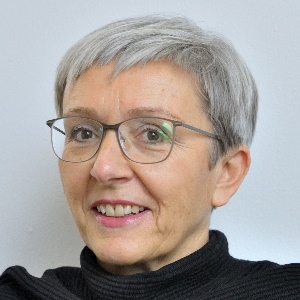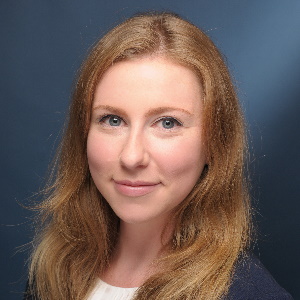C06
Grammatische Verarbeitung und syntaktischer Wandel
PI(s): Prof. Dr. Ulrike Demske & PD Dr. Claudia Felser
In diesem Projekt sollen die Dimensionen syntaktischer Variabilität aus diachroner Perspektive erforscht werden, ausgehend von der Hypothese, dass sich im syntaktischen Wandel tendenziell Strukturen durchsetzen, die leichter zu verarbeiten sind. In der zweiten Phase des SFB untersuchen wir, inwieweit das Prinzip der Dependenzlängenminimierung die Variabilität und den syntaktischen Wandel in der Geschichte des Deutschen erklären kann. Psycholinguistische Daten heutiger Sprecher werden mit Daten aus diachronen Korpora verglichen, um am Beispiel der Positionierung von Nebensätzen im Deutschen die Hypothese zu testen, dass die Distanz zwischen abhängigen Konstituenten im Laufe der Zeit deutlich abgenommen hat.
MitarbeiterInnen





Publikationen
- Peer-Reviewed: Papers, Journals, Books, Articles of the CRC
- Talk or Presentation: Talks, Presentations, Posters of the CRC
- SFB-Related: not produced in connection with the CRC, but are thematically appropriate
- Other: Papers, Journals, Books, Articles of the CRC, but not peer-reviewed
| Author(s) | Title | Year | Published in | Links | Type |
|---|---|---|---|---|---|
| Bosch, S., De Cesare, I., Felser, C., & Demske, U. | A multi-methodological approach to word order variation in German infinitival complementation. | 2022 | Featherston, S., Hörnig, R., Konietzko, A. & von Wietersheim, S. (eds.), Linguistic Evidence 2020 Proceedings - Linguistic Theory Enriched by Experimental Data (pp. 281-298) . Tübingen: University of Tübingen. | Other | |
| Demske, U. | Zur Grammatikalisierung von 'gehen' im Deutschen. | 2020 | Forum Japanisch-Germanistischer Sprachforschung, 2, 9-42. DOI: 10.11282/jggls.2.0_9 | Peer-Reviewed | |
| Bosch, S., De Cesare, I., Felser, C., & Demske, U. | A multi-methodological approach to word order variation in German infinitival complementation. | 2020 | Paper presented at the Linguistic Evidence 2020. Eberhard Karls University Tübingen, Tübingen, Germany. 13 - 15 February. | Talk or Presentation | |
| Bosch, S., & Felser, C. | The role of processing contraints on word order variation in German infinitival complementation. | 2019 | Paper presented at the 4th Conference on Experimental Approaches to Perception and Production of Language Variation (ExApp 2019), Münster, Germany. 26-28 September. | Talk or Presentation | |
| De Cesare, I. | Textsorteneffekte auf die Stellung infiniter Komplemente im Frühneuhochdeutschen. | 2019 | Paper presented at the Workshop ''Syntax der frühen Neuzeit'', University of Potsdam, Potsdam, Germany. 10 - 12 October. | Talk or Presentation | |
| De Cesare, I. | Word order variability and change in German infinitival complements. | 2019 | Paper presented at the 24th International Conference on Historical Linguistics (ICHL 24), The Australian National University, Canberra, Australia. 01 - 05 July. | Talk or Presentation | |
| De Cesare, I. | Grammatical processing and syntactic change: infinitival complements in German. | 2018 | Paper presented at the 3rd Summer School in Historical Syntax (SUM-UP 2018): Variation and its limits from a diachronic perspective, University of Potsdam, Potsdam, Germany. 27 - 30 June. | Talk or Presentation | |
| De Cesare, I., & Bosch, S. | Word order variation in German infinitival complements: Evidence from copus and experimental data. | 2019 | Paper presented at the Workshop ''Multimethodological approaches to synchronic and diachronic variation'', University of Potsdam, Potsdam, Germany. 25 - 26 October. | Talk or Presentation | |
| Demske, U. | Zwischen Kohärenz und Inkohärenz: Wortstellung von Infinitivkomplementen. | 2018 | Invited talk at the Japanische Gesellschaft für Germanistik, Tokyo, Japan. 27 August. | Talk or Presentation | |
| Demske, U., & De Cesare, I. | Grammatical processing and syntactic change: infinitival complements in German. | 2018 | Invited talk at the Lecture Series ''Linguistic Circle'', University of Edinburgh, Edinburgh, UK. 21 - 23 March. | Talk or Presentation | |
| Bosch, S., & Felser, C. | The role of L1 influence on L2 word order behaviour in German infinitival complementation. | 2022 | Paper presented at the GLAC 28, University of Georgia, Athens, USA, 31 March – 2 April. | Talk or Presentation | |
| Bosch, S,. & Felser, C. | Word-order variation in L2 German infinitival complementation. | 2022 | Paper presented at the EuroSLA 31, University of Fribourg, Switzerland, 24 - 27 August. | Talk or Presentation | |
| De Cesare, I., & Demske, U. | Ambiguity avoidance as an efficiency strategy driving word order change. | 2022 | Paper presented at the 25th International Conference on Historical Linguistics (ICHL25), University of Oxford, Oxford, UK. 01 - 05 August. | Talk or Presentation | |
| Demske, U. | Variation across newspapers in Early Modern German: Degrees of syntactic complexity. | 2022 | F. Dietz, M. van Koppen, C. van de Poppe, M. Schraagen & J. Wall (Eds.), Cross-disciplinary approaches to linguistic variation in Early Modern West Germanic. Special issue of Journal of Historical Syntax, Vol. 6 (No. 13-18, pp. 1-36). DOI: 10.18148/hs/2022.v6i13-18.136 | Peer-Reviewed | |
| Gosemann, L., & De Cesare, I. | Factors influencing non-canonical word order in German: a corpus study. | 2023 | Paper presented at the AG16: Creativity and routine in sentence production, 45. Annual Conference of the German Linguistic Soeciety (DGfS), 09.03.23, Universität zu Köln, Cologne, Germany. | Talk or Presentation | |
| Bosch, S., De Cesare, I., Demske, U., & Felser, C. | Word-order variation and coherence in German infinitival complementation. | 2023 | The Journal of Comparative Germanic Linguistics, 26(1), 1. DOI: 10.1007/s10828-023-09140-8 | Peer-Reviewed | |
| Felser, C. | Structural ambiguity in language comprehension and production. | 2023 | Talk presented at the ICHL 26, University of Heidelberg, 5 September. | Talk or Presentation | |
| Felser, C., & Bosch, S. | Processing Factors Constrain Word-Order Variation in German: The Trouble with Third Constructions. | 2024 | Journal of Germanic Linguistics, 36, 47-75 DOI: 10.1017/S1470542723000107 | Peer-Reviewed | |
| Cortés Rodríguez, Á., Bosch, S., & Felser, C. | Dependency length minimization in German relative clause extraposition: Evidence from speeded acceptability judgments and production choices. | 2024 | Paper presented at the 6th Variation and Language Processing Conference (VALP6), University of Vigo, Spain. 26 - 28 June. | Talk or Presentation | |
| Gosemann, L. | The placement of relative clauses in German newspapers: processing constraints from a diachronic perspective. | 2024 | Poster presented at the 12th International Conference on Language Variation in Europe (ICLaVE 12), University of Vienna, Vienna, Austria. 08 - 11 July. | Talk or Presentation |

